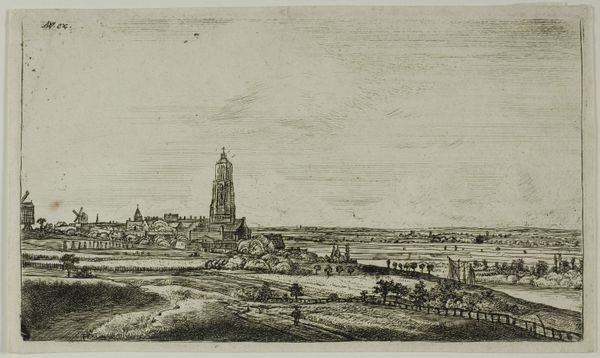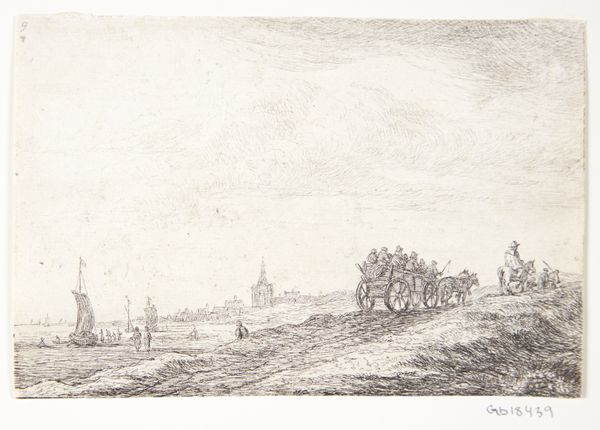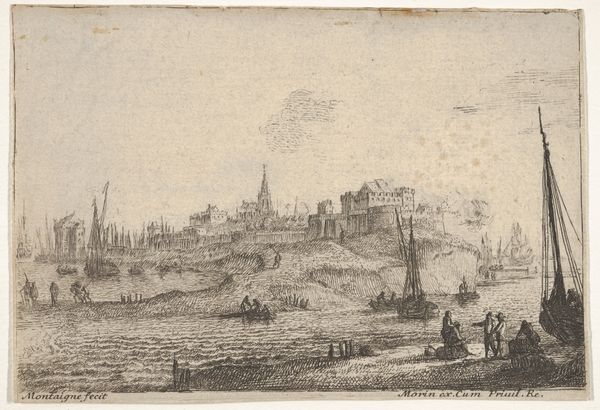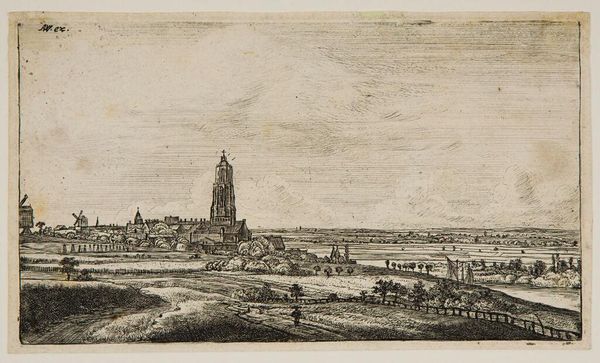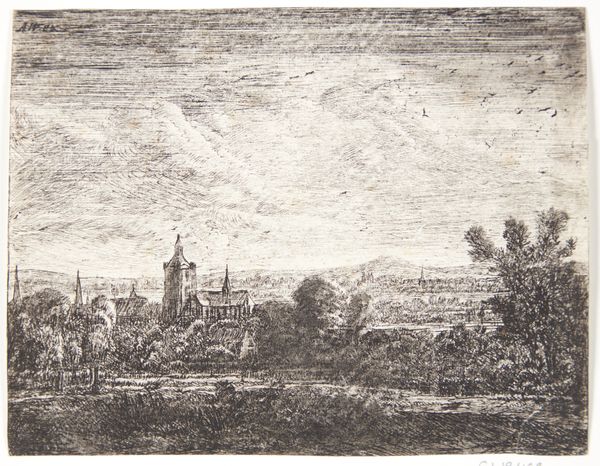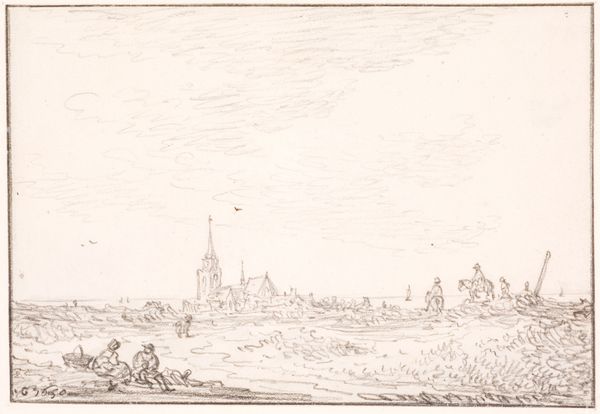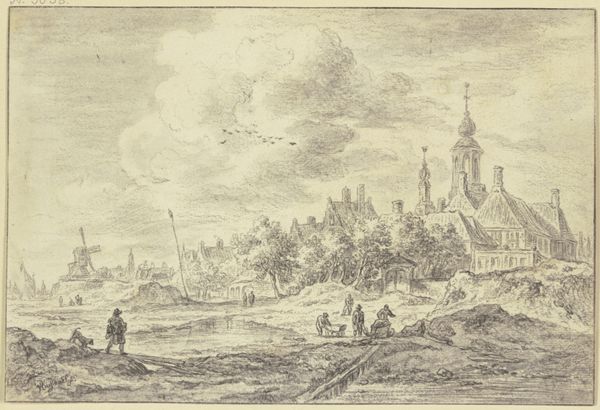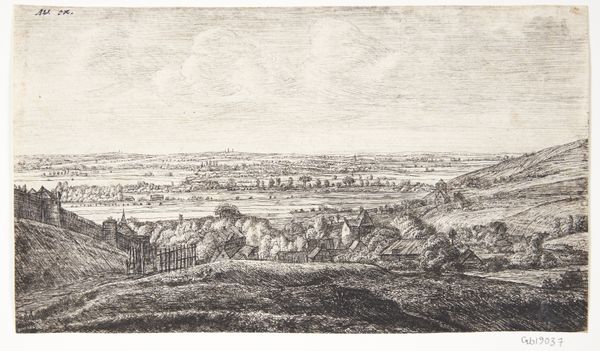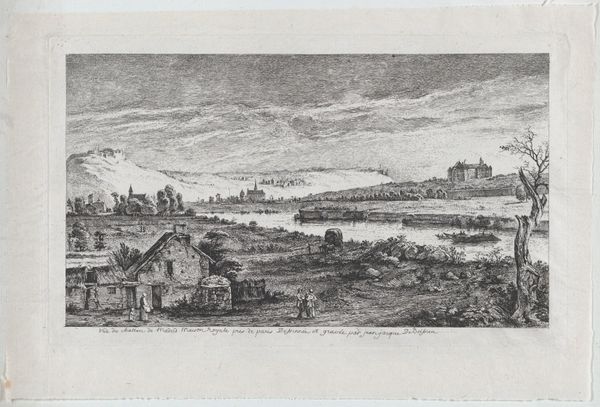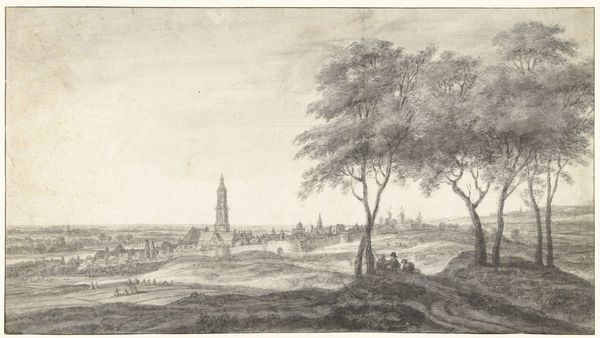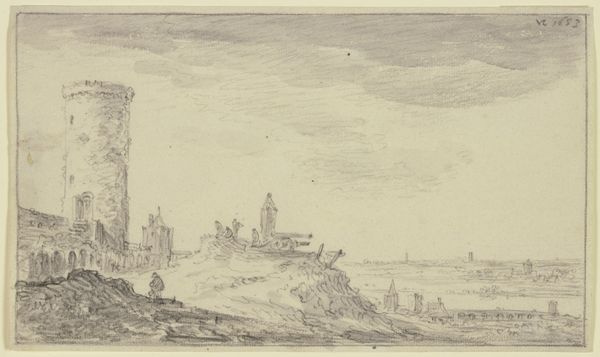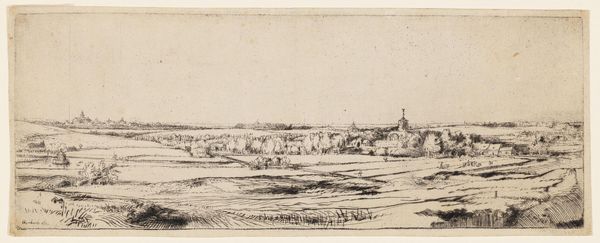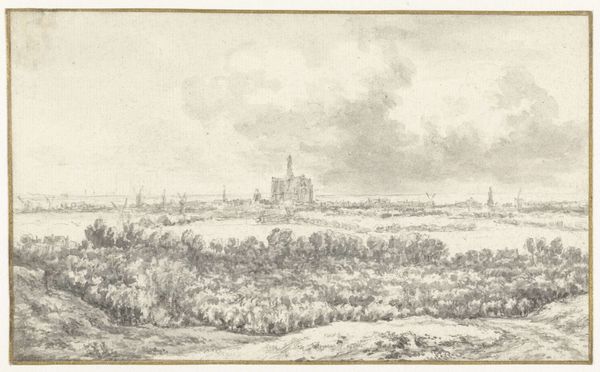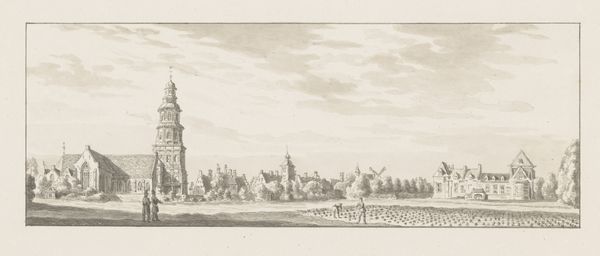
print, etching
#
dutch-golden-age
# print
#
etching
#
landscape
#
cityscape
Dimensions: 117 mm (height) x 208 mm (width) (bladmaal)
Anthonie Waterloo created this etching, "View of the Rhine," in the 17th century. Notice how the composition is structured around the contrast between the detailed foreground and the expansive, light-filled background. The artist employs a delicate network of fine lines to construct a scene that invites contemplation of space and form. Waterloo uses line and texture to create depth and distance. The foreground, rendered with denser, more defined lines, gradually dissolves into the background’s lighter touch. This etching exemplifies the formal strategies used during this period to convey not just a visual likeness but also a sense of atmosphere. The strategic placement of the tower and other architectural elements creates a rhythm within the scene, guiding the viewer’s eye through the landscape. The print underscores how formal elements in art can both represent and interpret the world. Waterloo’s "View of the Rhine" is a structured exploration of how an artist’s technique can shape perception.
Comments
No comments
Be the first to comment and join the conversation on the ultimate creative platform.
